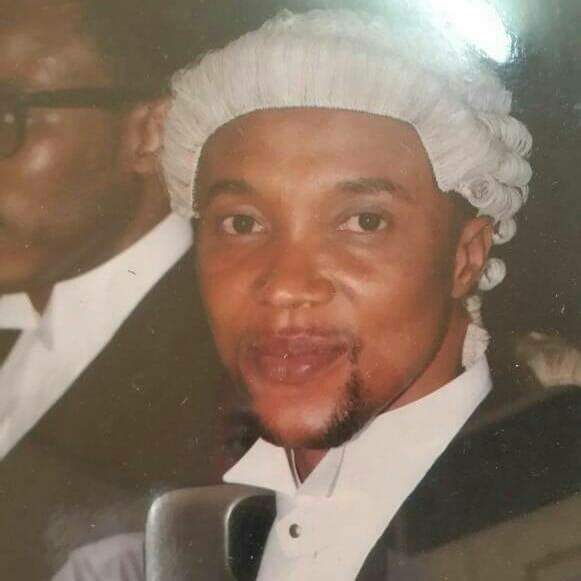By Amin Kef Sesay
Minds must definitely have been severely stirred at the Ross Road Magistrate Court No. 3 when a brand new generation Magistrate, Hadiru Daboh, struck a very loud note when he proclaimed: “MY COURT IS A COURT OF FAIRNESS AND JUSTICE”.
Arguably, since reform minded Justice Babatunde Edwards took over the Judiciary with a remit from His Excellency the President to restore the noble revered institution to its old glory, Magistrate Hadiru Daboh is the clearest expression of that vision of a Judiciary manned by upright, godly men and women whose integrity shines bright for all to see like the midday sun.
For poor citizens without the political, economic and social connections required to get speedy fair justice in our courts, Magistrate Hadiru Daboh’s statement that the court is a respectful place and that both Police Prosecutors and Lawyers must have sufficient grounds for refusing bail and always do what is right sounds like very sweet music.
Arguably, injustice in Sierra Leone has had to do a lot with a Judiciary that was accused of being deeply corrupt as many said it puts love of money above their integrity as dispassionate dispensers of justice to one and all; regardless of rank or position in society.
A credible Judiciary is what gives any Government credence with its citizens because it is first and foremost the law that regulates behaviour within the society by punishing those forms of misbehaviour which are detrimental to society.
In dealing with criminal cases, Magistrates have awesome powers and they thus have a most grave responsibility to exercise those powers in a completely fair and just manner, as the fate of fellow human beings lies in their hands.
They decide whether a person is innocent or guilty of criminal conduct and thus whether or not that person is to be subjected to punishment. If they make wrong decisions, either innocent persons will suffer unfairly or guilty persons will unjustly escape punishment.
As such, Magistrates must decide all criminal cases on a fair, objective and impartial basis by deciding quickly, deciding whether or not the accused person is guilty after carefully considering all the evidence laid before him or her. If the Magistrate finds the accused person guilty, he or she must then carefully decide upon the appropriate penalty to impose upon the convicted person.
In dispensing justice, there is the need for judicial officers to treat the Prosecutor and unrepresented accused equally and even-handedly.
Judges and Magistrates owe it to their own self-esteem; to the dignity of their office; to the credibility of the legal system; and most of all, to those who attend their judgment, to comport themselves in such a way as persuades all before them that a fair hearing was afforded and an honest and considered decision handed down.
Thus, the function of Magistrates is more than acting as mere umpires in a game, who are there, to see that neither side commits fouls.
They must direct and control the trial according to recognised rules and procedures and ensure that justice is not only done but is manifestly seen to be done.
As such, Magistrates must strive to ascertain the truth in all cases which come before them. They should not, however, descend into the arena of a trial.
In order to find out the truth, Magistrates are entitled and, indeed, are duty bound to question witnesses and the accused to clarify points which are unclear in their testimony.
They must not, however, take over the examination in chief or cross-examination of witnesses. They must refrain from questioning in a manner and to an extent which gives the impression that they are no longer impartial.
They should not engage in prolonged questioning of witnesses. If they do intervene to an excessive extent in a trial they will eliminate or impair their ability to assess the evidence independently and impartially or to adjudicate upon the evidence.
It is thus that The Calabash gives kudos to Magistrate Hadiru Daboh and to say more grease to his elbows for standing up tall and proud to hold himself up as a beacon of honesty, integrity and fairness; without which the dispensation of justice becomes prejudicial to litigants and society at large.




